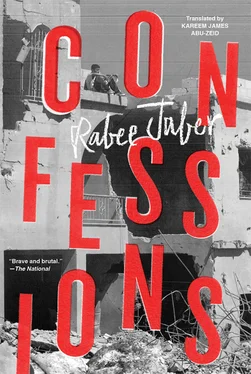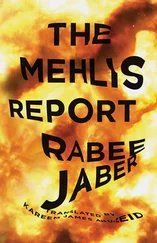Years later, when I was attending a training program in the Port of Hamburg, I met a woman named Christina. She’d come for the training, too, and we became friends. She told me she was going to work at the Oslo Airport after she graduated in a few months. We used to go to a bar near the old municipality building. We’d drink our beers, the foam overflowing, and eat fried potato sandwiches. Once, Christina told me a story, and as she was talking, I remembered the dorm room, and the potato sandwich (what was left of it) wrapped in paper on the desk, while the wind blew outside (when night advanced, the wind would blow and bend the tops of the cypresses and beat them against the balcony railing, and the rain was pouring as I stayed up late in the light of the desk lamp, which hovered above the dark equations…. It was cold, very cold. An electric heater with glowing red coils sent out a bit of warmth at my feet, and the tea kettle was whistling). Christina was talking about her father while I listened, feeling like I was back there, back in that room I’d left in Beirut…. I remembered the details of the room, but I couldn’t remember the person sitting at the desk. I only remembered that his back was bent, that he had dark circles around his eyes, and that he was sprouting a beard — it had been days since he’d shaven. This is what Christina told me while we were smoking, after eating and drinking our fill, and before we went out into the rainy night: her father was from a village famous for making a specific kind of sausage. But he didn’t work in that trade — her father raised fish and pickled them. And he had a hobby he loved: picking mushrooms in the Black Forest. He used to pick mushrooms in some rough terrain, and one time he fell between the rocks, he fell into a crevice and hit his head. When he opened his eyes, all he could see was darkness. Then he saw the stars in the sky. Before he saw the stars, he thought he was dead. He thought that was death. And then he realized he wasn’t dead. He wanted to move, he tried to get up, but couldn’t. He was caught between two rocks, stuck there, and he couldn’t get himself out. He was covered in dew. The dew was cold and icy — that was the Black Forest, that was high ground. Do you know the Black Forest? After some effort, he managed to move, he managed to escape from the grip of the rocks. At that moment he noticed he couldn’t remember who he was. He hadn’t realized it the whole time he was struggling with the rocks to free his body, but once he’d managed to get out of the crevice and was standing on the ground among the trees, he realized he couldn’t remember where he’d come from, he couldn’t remember who he was, he didn’t know his own name.
Christina fell silent and looked at a loud group of people who’d entered the bar. They were drunk and wearing summer clothes, even though it was cold. I asked her what happened to her father next.
She said he climbed a tree and looked for a light, just like people in the stories, and when he saw a light he walked toward it. That’s how he reached the village. He went to the first house he could find and knocked on the door, and when an old woman with disheveled hair opened it (she was terrified, it was late) he asked her if she knew him, if she could tell him his name.
Christina’s story stayed with me. I wished I’d heard that story earlier, back when I was hunched over the incomprehensible equations in my room on the fifth floor, feeling the darkness steal up to my eyes. I remember my roommate snoring while I covered myself in a blanket and went out to the wraparound balcony and walked around the fifth floor, around the dark rooms, once, twice, three times. I went down the stairs, my slippers dragging on the steps. I didn’t take the elevator because it sometimes broke down. If it broke down in the middle of the night, after midnight, you had to wait a long time for someone to wake up. I went down to the entrance of the building, looked at the locked telephone room and at the black phone motionless beneath the light. I don’t know why they’d left the light on. Then I went to the foyer and turned on the TV. On other occasions I kept on walking. I went out to the oval lawn, I went farther. I saw students up late studying in some of the classrooms, a single student in each room. The light was brighter here. White neon. I saw a tired face look up from a book and stare right at me. I saw a large cup of Nescafé beside the book. Did I see anything? Now, when I recall what happened — so I can tell you about it — I can see things I didn’t see back then. Even though they were right in front of me.
If I’d heard Christina’s story back then, would it have done me any good? Her father climbed a tree and looked for some light. He knocked on the first door and the old woman opened it. He asked her what his name was, and she told him: she knew him. But me — who knows me?
The small buzzer in my room went off and my roommate said: it’s for you, not me. I left the room and walked the length of the wraparound balcony to the staircase, then went up to the sixth floor. I stood up there and looked out toward the sea. I didn’t go down to the telephone room, and I didn’t answer the call. I knew who it was.
I still don’t know how I passed the exams. I didn’t fail two courses, I didn’t even fail one. Who was studying in my place while I looked at the symbols without grasping their meaning, without knowing what they were?
I told you not to judge me at the beginning of my story. Time passed, and when the buzzer sounded again, I went downstairs and answered the phone. Ilya said he’d come by the dorms twice and hadn’t found me. I was surprised, because no one told me someone had come by. I told him I didn’t know. He said he’d broken the phone trying to call. “Najwa’s been calling you too, from Paris.”
A few days later the buzzer went off again. I heard Najwa’s voice coming from a distance, the connection kept cutting in and out. I heard some of the words, and some were lost en route. She asked me to come visit her during the vacation: “I want to see you, my brother, I want to sit and talk with you. Come to Paris.” She said she’d book the flight and mail me the ticket.
Don’t judge me. Antoine and I spent the vacation in the microfilm section of the university library looking through newspapers from ’76 for a burned white car (burned or riddled with bullets, empty or full of corpses). We looked for a wrecked car in the area around al-Burj Square, and we found hundreds of cars: some were white, and some were other colors. We decided to look through the obituaries. We tried to learn something from the pictures of the dead, and from their names (countless pictures, countless names). We knocked on every door. Antoine tried to convince a judge who was a relative of his to look through the records of the domestic security services: the judge laughed and said all the records from the war — and especially the Two-Year War — had been burned. They’d been burned or lost or stolen or destroyed. The records from the motor vehicles registry had also been burned (that was Antoine’s suggestion, to look for a white Mercedes or a white Opel). What do you do when you climb the tree and can’t see any light?
Ilya helped me too. He’s the one who remembered Evelyn Azar. He found her phone number in an old notebook, hidden inside a dresser drawer. He contacted her and arranged a meeting for me. When she opened the door of her house in the Ramil district, she was holding a handkerchief. She coughed and covered her mouth. She said the flu was merciless. I spent twenty or thirty minutes in her house, and we split our conversation between the flu and the period when she “took care of orphans at the beginning of the war.” She said she found homes here and abroad for countless orphans, and she said she couldn’t help me because she didn’t know anything about me. She’d helped make arrangements for so many orphans — but they were numbers and names to her. And she asked me why I didn’t check with the mayor.
Читать дальше












